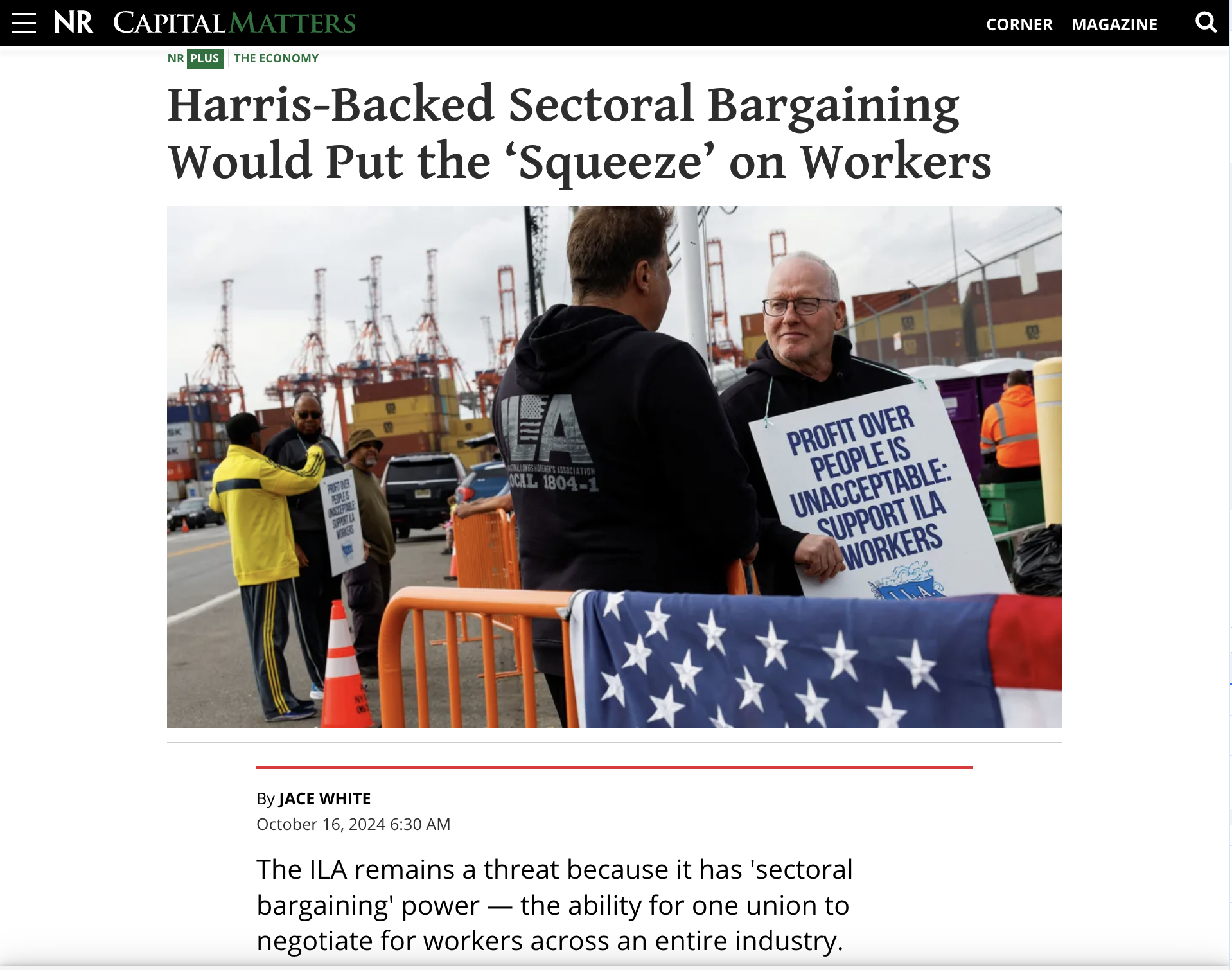Jace White
Jace White is the Director of Federal Affairs for the National Right to Work Committee.
He works to build support for the National Right to Work Act, a bill that protects workers in all 50 states from being forced to pay dues to a labor union.
Email: jacewhite432@gmail.com
Sectoral Bargaining Op-Ed

In my first published article for National Review, I took on "sectoral bargaining," a scheme that gives union bosses control over entire industries.
Excerpt:
Kamala Harris argued that unions should be organized “sector by sector” on the 2019 campaign trail, and pro-union academics at Harvard proposed a scheme that would give control of a sector to a union if it demonstrated support from just 10 percent of the sector’s workforce.
Under current laws, the government will only give unions control of one workplace at a time, but sectoral bargaining can be established in heavily regulated industries where the supply of labor is tightly controlled, as with dockworkers, teachers, and elevator mechanics.
Oren Cass of American Compass — a self-styled “conservative” group that has received significant funding from the Hewlett Foundation, which also helped fund the Harvard proposal mentioned above — said the elevator industry “presents one of the rare successful examples of sectoral bargaining in American industrial-labor relations.”
Cass praised the elevator monopoly because it means manufacturers can’t “squeeze workers” to cut costs.
But Cass ignores the workers who are “squeezed” by not being hired because the elevator union restricts entry to protect its monopoly position. He also ignores the non-elevator workers on construction projects who are “squeezed” because the money that would have covered their paychecks is diverted to the elevator cartel.